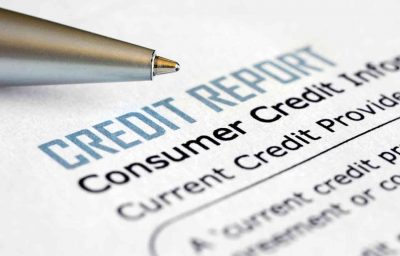- Lemberg Law
- Bankruptcy Law: Terms And Definitions
- FAQ About Bankruptcy
- How Long Does Bankruptcy Stay on Your Credit Report?
A Chapter 7 bankruptcy stays on your credit report for ten years, while a Chapter 13 bankruptcy stays on your credit report for seven years.

What negative information is on my credit report?
Your credit report can include a variety of negative information. For example, a credit report reflects late payments, foreclosures, and criminal records. Typically, the negative information is deleted after seven years.
Bankruptcy and credit reports
The two types of bankruptcy that individuals and couples usually file are Chapter 7 and Chapter 13. Chapter 7 bankruptcy discharges all of your eligible debts, meaning that it wipes the slate clean. Once you go through the Chapter 7 bankruptcy process, the bankruptcy will be listed on your credit report for ten years.
Chapter 13 bankruptcy reorganizes your debts, and includes a plan to make payments for three or five years. Once you’ve made the scheduled payments, then any remaining balances on eligible debts are discharged. A Chapter 13 bankruptcy stays on your credit report for seven years.
It’s important to remember that individual credit lines – each company to which you owed money – may disappear sooner. Typically, each account falls off of your credit report seven years after it was first reported as delinquent. So, for example, if a debt was reported as delinquent two years prior to filing for bankruptcy, it will likely disappear five years after your bankruptcy.
Does the impact of a bankruptcy lessen over time?
Even though a bankruptcy stays on your credit report for seven or ten years, its impact on your credit score lessens over time. You can begin to establish good credit as soon as your bankruptcy is granted. Starting with a secured credit card and making timely payments moving forward, your credit record will begin to improve.
Check your credit reports from Experian, TransUnion, and Equifax at least once each year. Accounts that were part of your bankruptcy should no longer be reported as delinquent, and accounts that were not included in your bankruptcy should not be reported as having a bankruptcy status.
What next?
Relying on the skill of an experienced bankruptcy attorney will help ensure that the process goes smoothly and is as painless as possible and that you can start rebuilding your credit. Lemberg Law has a team devoted to representing clients who pursue bankruptcy as a way to resolve their debts. Call 844-685-9200 and receive a free consultation, or submit our online request form.
Have questions? Call us now at 855-301-2100 for a Free Case Evaluation.
Our services are absolutely FREE to you.
The harassing company pays our fees.